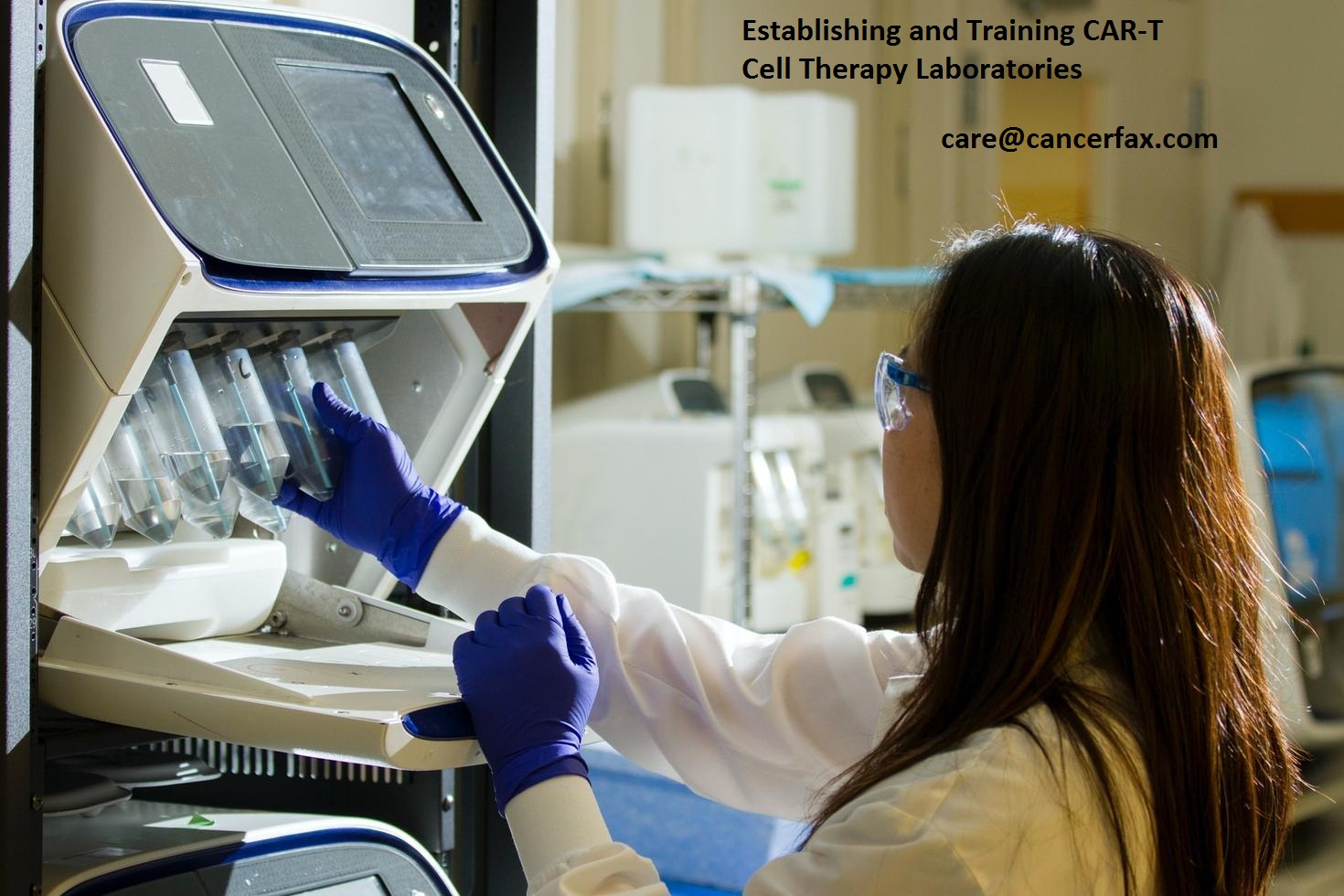Introduction
CAR-T Cell Therapy (Chimeric Antigen Receptor T-cell Therapy) has revolutionized the treatment of cancer, offering hope to patients with resistant or relapsed malignancies. This groundbreaking therapy involves engineering a patient's T cells to recognize and destroy cancer cells effectively. Setting up CAR-T Cell Therapy laboratories and providing comprehensive training are critical steps for making this cutting-edge treatment accessible worldwide.

In this article, we’ll explore the complete process of establishing CAR-T Cell Therapy labs, the necessary equipment, and the training programs essential for building a robust foundation for global collaborations in cancer treatment.
The CAR-T Cell Therapy Manufacturing Workflow
1. T-Cell Collection (Leukapheresis)
Process:
T cells are collected from the patient’s blood using a process called leukapheresis. This ensures the extraction of sufficient T cells for further engineering.
Required Equipment:
Leukapheresis machines (e.g., Spectra Optia)
Sterile blood collection kits
Specialized freezers for sample storage
2. T-Cell Activation
Process:
The collected T cells are activated to stimulate their readiness for genetic modification. Activation is typically achieved using CD3/CD28 beads, which mimic antigen-presenting cells.
Required Equipment:
CO2 incubators
Fluorescence microscopes
Specialized culture media such as RPMI 1640
3. Genetic Engineering (Transduction)
Process:
In this step, a chimeric antigen receptor (CAR) gene is introduced into the T cells. This is often done using viral vectors like Lentivirus or Retrovirus.
Required Equipment:
Bioreactors for viral vector production
Ultrafiltration systems for viral purification
Electroporation devices for non-viral gene transfer
4. Expansion and Cultivation of CAR-T Cells
Process:
Genetically modified CAR-T cells are expanded under controlled conditions to reach a therapeutic dose. This phase is critical for ensuring the cells are potent and viable.
Required Equipment:
CliniMACS Prodigy or other closed-system bioreactors
Advanced incubators with precise temperature, humidity, and CO2 control
Cytokines like IL-2 for cell growth promotion
5. Quality Control (QC)
Process:
Quality testing ensures the manufactured CAR-T cells are safe, functional, and free from contamination.
Tests Performed:
Flow cytometry to confirm CAR expression
Functional assays to measure anti-cancer activity
Sterility tests to detect microbial contamination
Required Equipment:
Flow cytometers
PCR machines for microbial contamination testing
Cell culture facilities
6. Cryopreservation and Storage
Process:
The final CAR-T cell product is cryopreserved in liquid nitrogen to maintain viability until infusion into the patient.
Required Equipment:
Cryopreservation tanks with liquid nitrogen
Cryoprotectants like DMSO
Automated freezing systems
Why Establish CAR-T Cell Therapy Laboratories Worldwide?
Expanding Access to Life-Saving Treatments:
By setting up laboratories in different regions, patients gain quicker access to CAR-T therapy without the need for overseas travel.
Enhancing Local Research Capabilities:
Laboratories can become hubs for innovation and collaboration in immunotherapy.
Reducing Costs:
Local production significantly reduces logistical expenses and treatment costs.
Training Programs for CAR-T Cell Therapy Laboratories
Comprehensive training programs are crucial for ensuring the success of CAR-T cell therapy labs. These programs cover:
Hands-On Workshops:
T-cell engineering techniques
Viral vector production and handling
Theoretical Training:
Basics of immunotherapy and CAR-T cell technology
Regulatory and GMP compliance
Collaborative Training Programs:
Partnerships with global leaders in CAR-T cell research can help transfer knowledge effectively.
Challenges and Opportunities
Challenges:
High costs for equipment and reagents
Compliance with strict regulatory standards
Recruitment and retention of skilled professionals
Opportunities:
Growing demand for CAR-T therapy in developing countries
Innovations in automation and closed-system production
International collaborations for cost-sharing and knowledge exchange
How We Can Help
Our expertise lies in:
Turnkey CAR-T Lab Setup: We handle everything from equipment procurement to infrastructure development.
Comprehensive Training: We offer both onsite and online training tailored to your team’s needs.
Global Collaboration: We work with hospitals, universities, and biotech companies worldwide to ensure your lab meets international standards.
Conclusion: Bringing CAR-T Therapy to Every Corner of the Globe
By establishing CAR-T Cell Therapy laboratories worldwide, we can democratize access to this life-saving treatment, reduce costs, and foster innovation in cancer care. Whether you’re a hospital, a biotech company, or a government organization, we’re here to assist you in bringing CAR-T therapy to your region.
Contact us today to start your CAR-T Cell Therapy journey.




